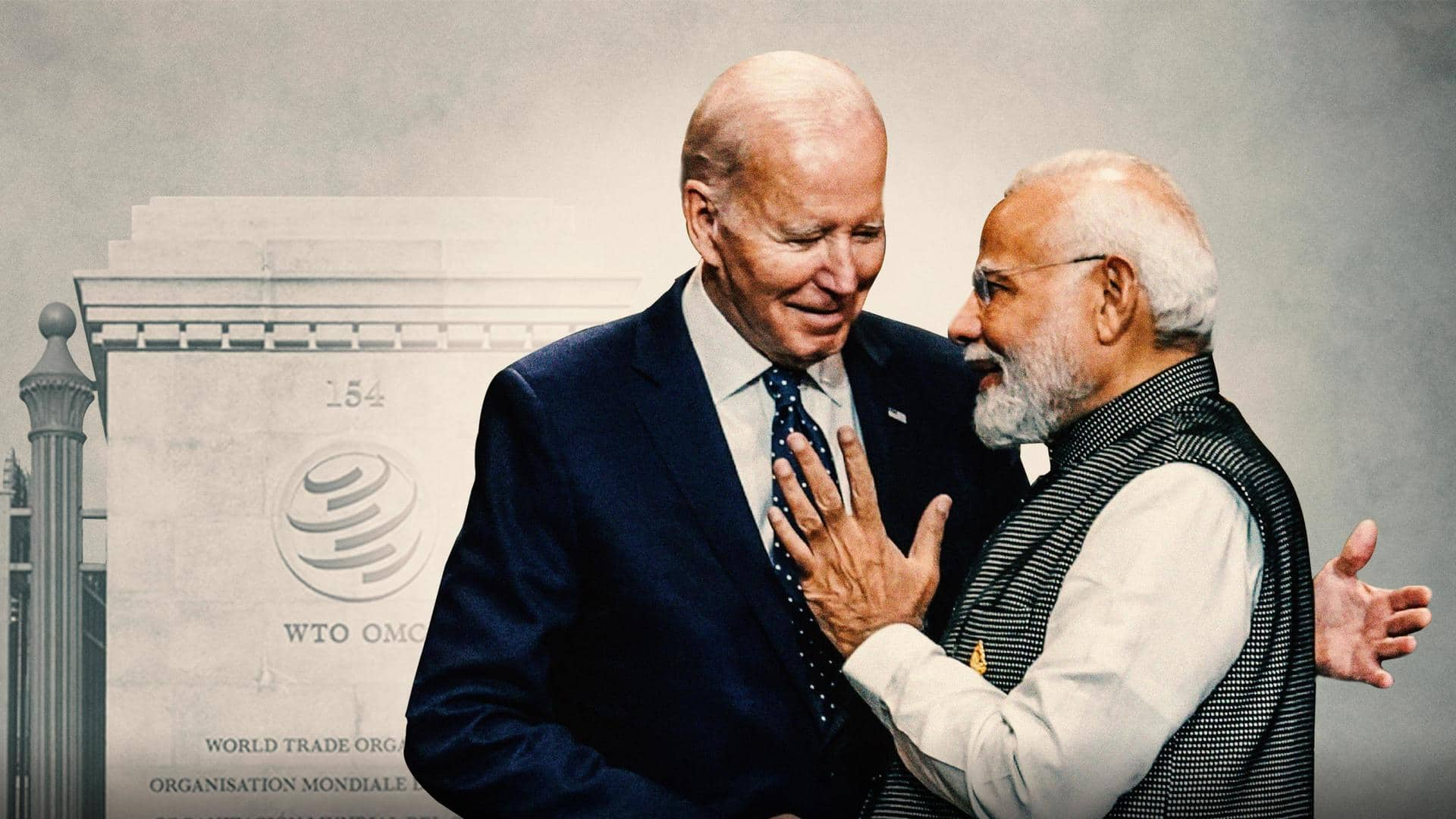
India, US to end six WTO disputes, lift tariffs
What's the story
Amid Prime Minister Narendra Modi's state visit to the United States (US), India and the US have agreed to end six trade disputes at the World Trade Organization (WTO), US Trade Representative (USTR) Katherine Tai said on Thursday. Meanwhile, India has decided to lift the retaliatory customs duties imposed on 28 US products, including chickpeas, lentils, almonds, walnuts, apples, boric acid, and diagnostic reagents.
Context
Why does this story matter?
On Thursday, India and the US signed major deals related to defense, technology, and space cooperation, giving a major boost to bilateral relations. Aside from the pacts, the resolution of trade disputes and lifting of tariffs will increase trade between both countries and help Indian exporters get crucial tax advantages. Among the six WTO disputes, both India and the US initiated three each.
Information
Why did India impose duties on US products
In 2018, the US imposed a 25% import tax on steel products and 10% import tax on aluminum products on grounds of national security under the country's Section 232 Investigations. In retaliation, India, in June 2019 imposed customs duties on 28 products from the US.
Quote
Result of intensified bilateral engagement over last 2 years: USTR
USTR Tai said the "agreement represents the culmination of intensified bilateral engagement over the last two years." She added, "US agricultural producers and manufacturers will now enjoy renewed access to a critical global market and we will strengthen our trade relationship" with India.
Disputes
WTO panel ruled India's export measures inconsistent with global norms
Apart from steel and aluminum products, the US's complaints filed in the WTO pertained to hot-rolled carbon steel flat products from India, and the renewable energy sector. In 2019, a WTO panel ruled that India's export measures were inconsistent with global trade norms. The disputes raised by India were related to solar cells and modules, export-related measures, and additional duties on some US products.
Details
US blocking members' appointment to WTO's appellate body
The US is India's largest trading partner. In 2022-23, the bilateral trade jumped to $128.8 billion as compared to $119.5 billion in 2021-22. Notably, a WTO panel's ruling can be challenged by the WTO's appellate body. However, the appellate body is currently not functional due to disputes among member countries over appointing appellate body members, which the US has been reportedly blocking.